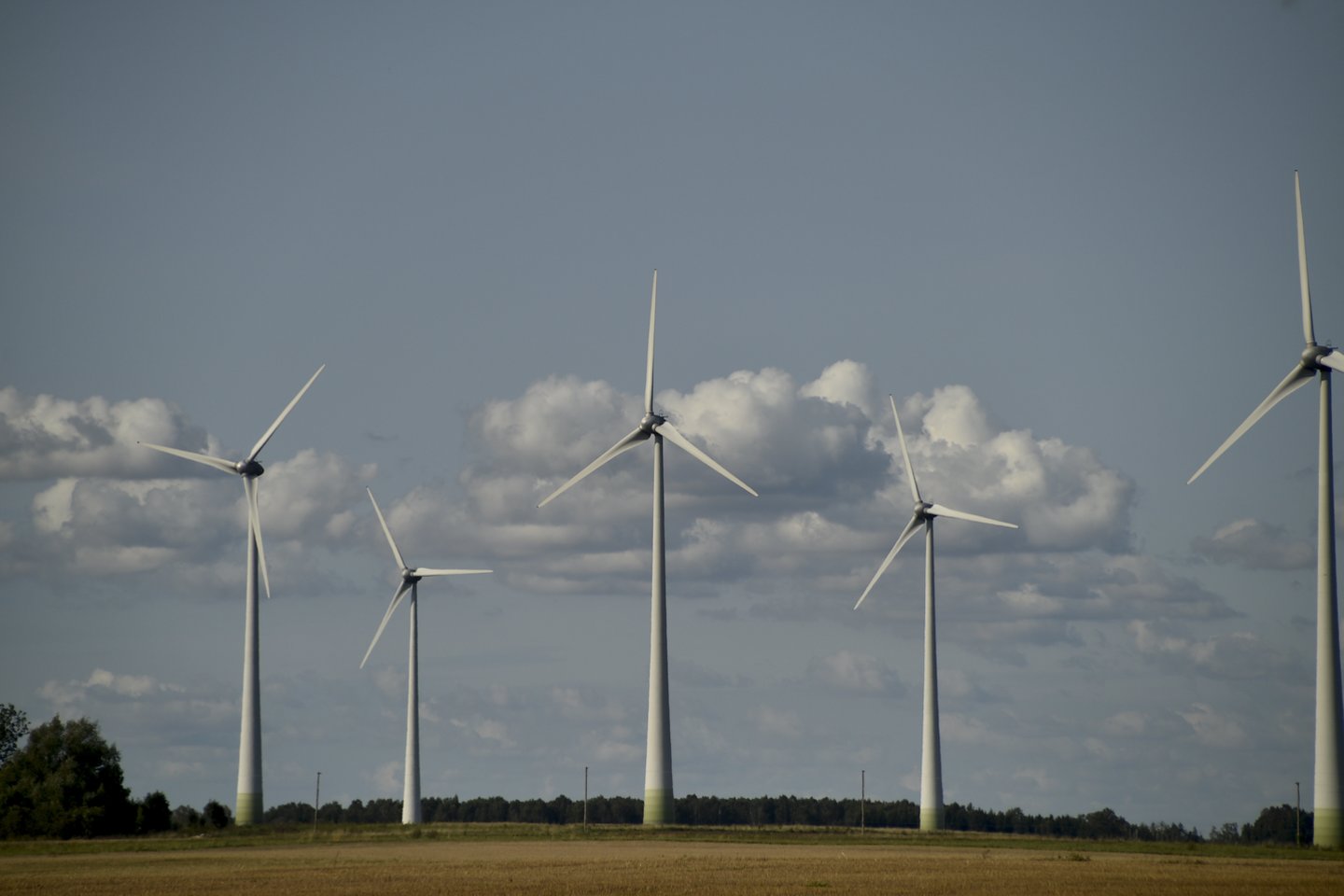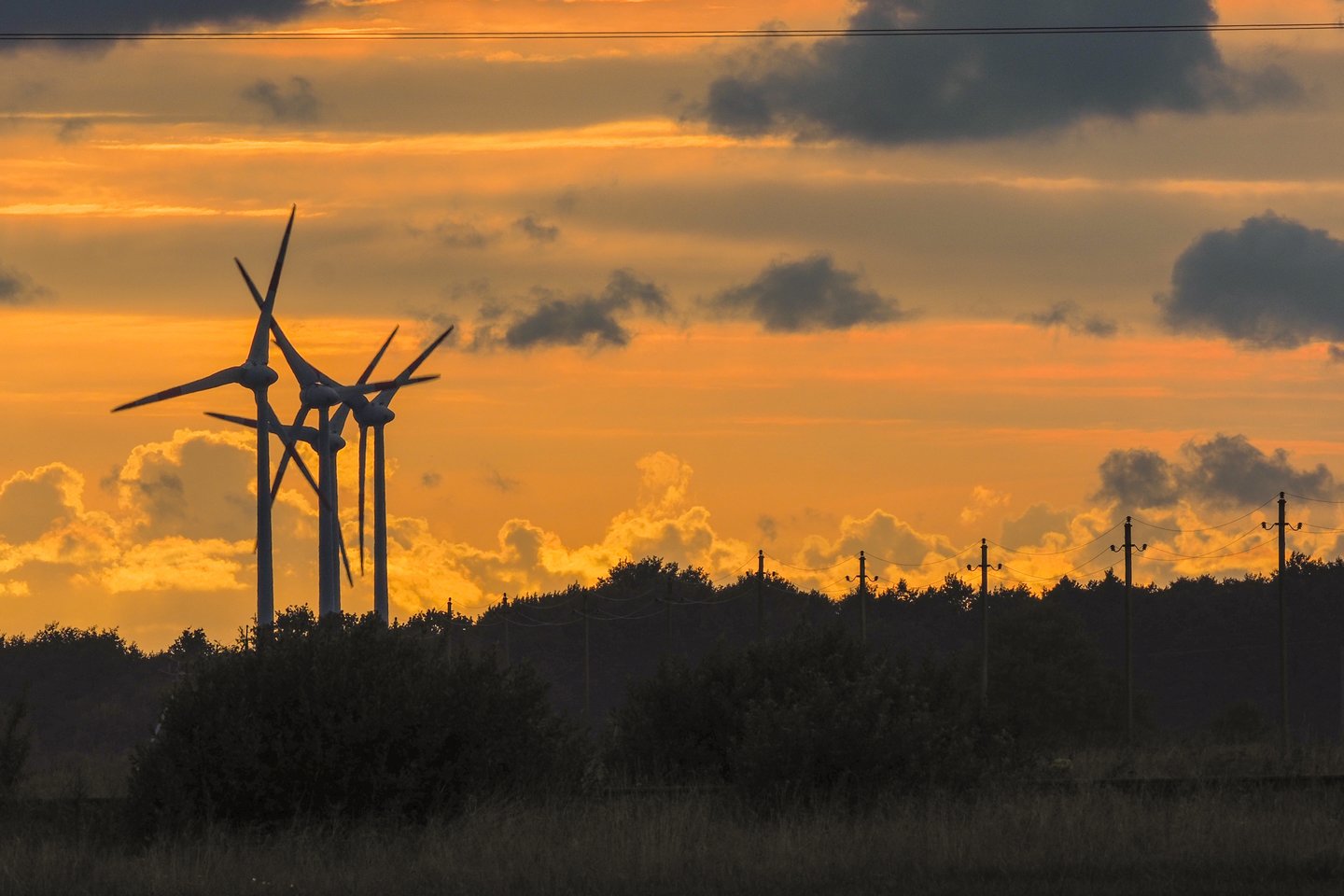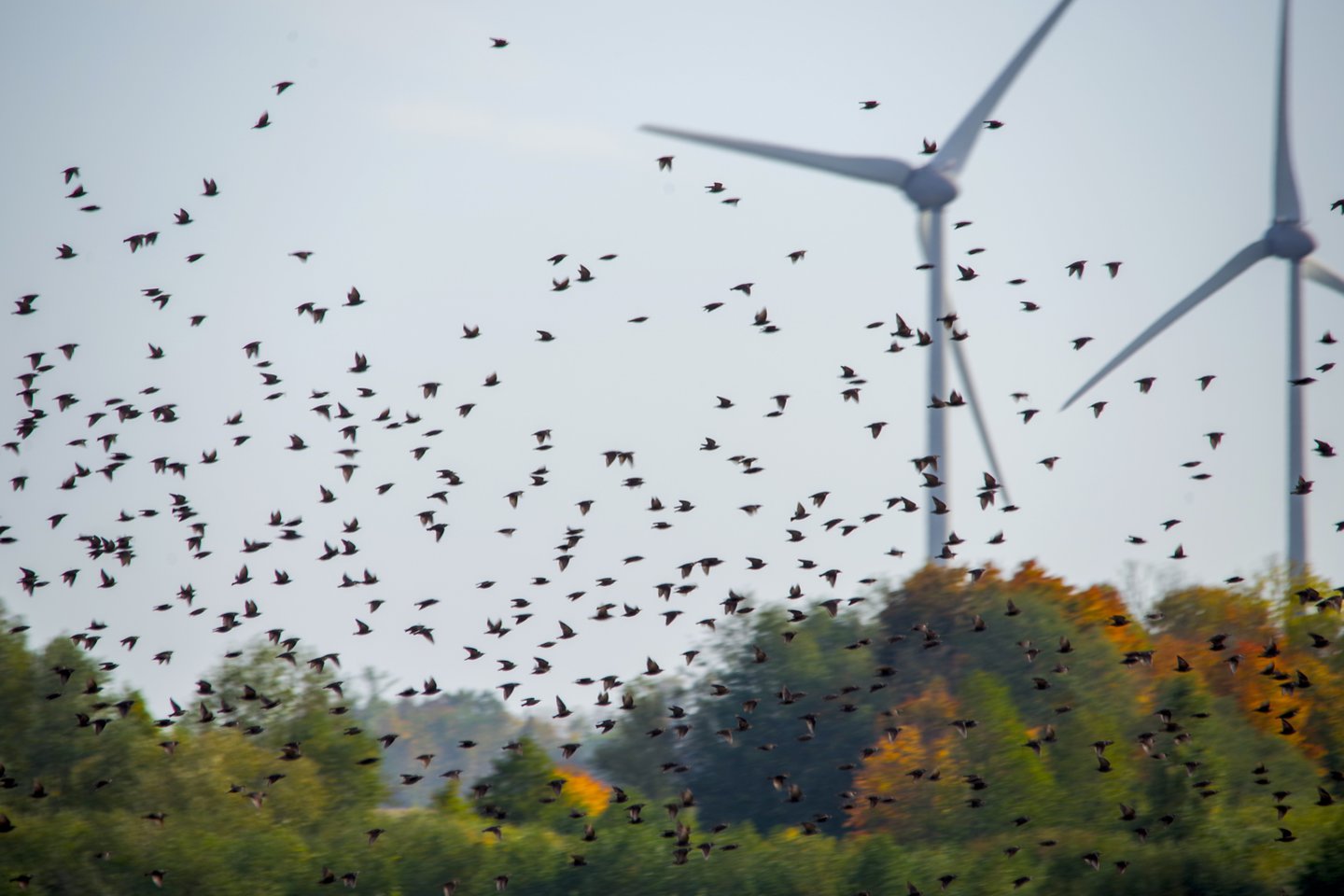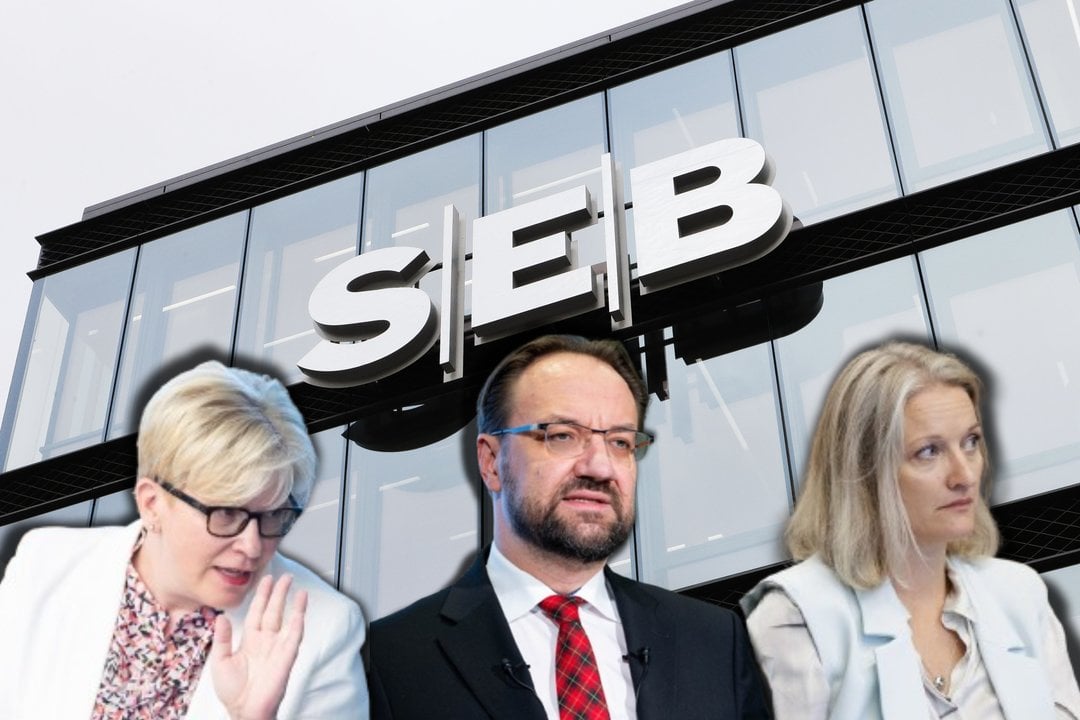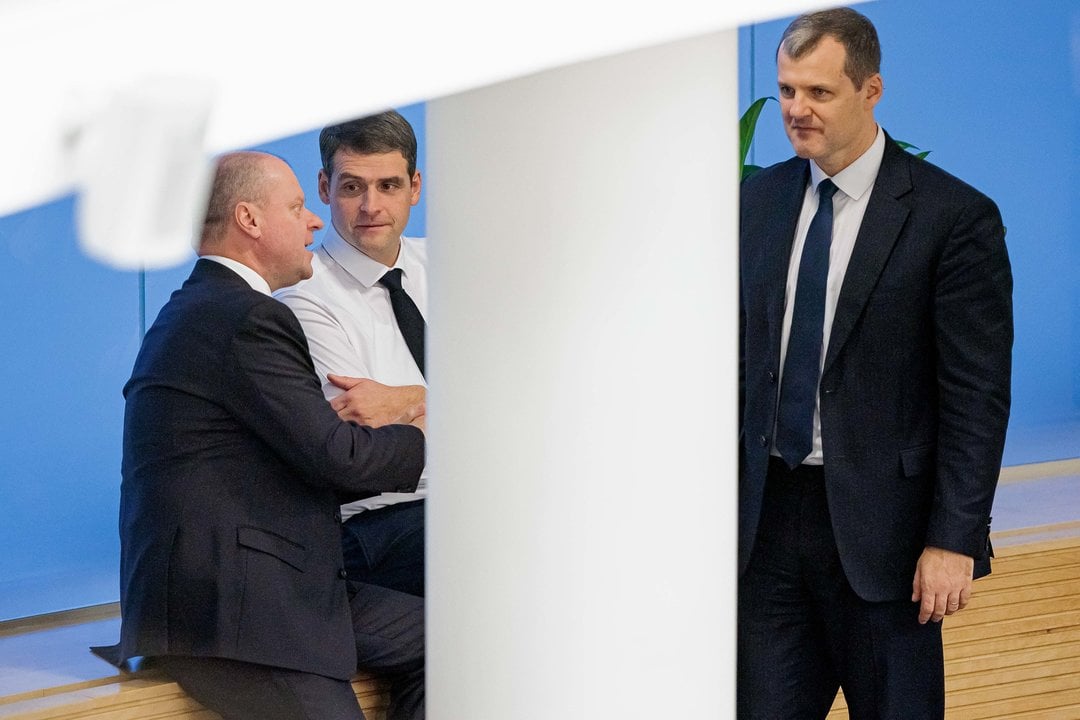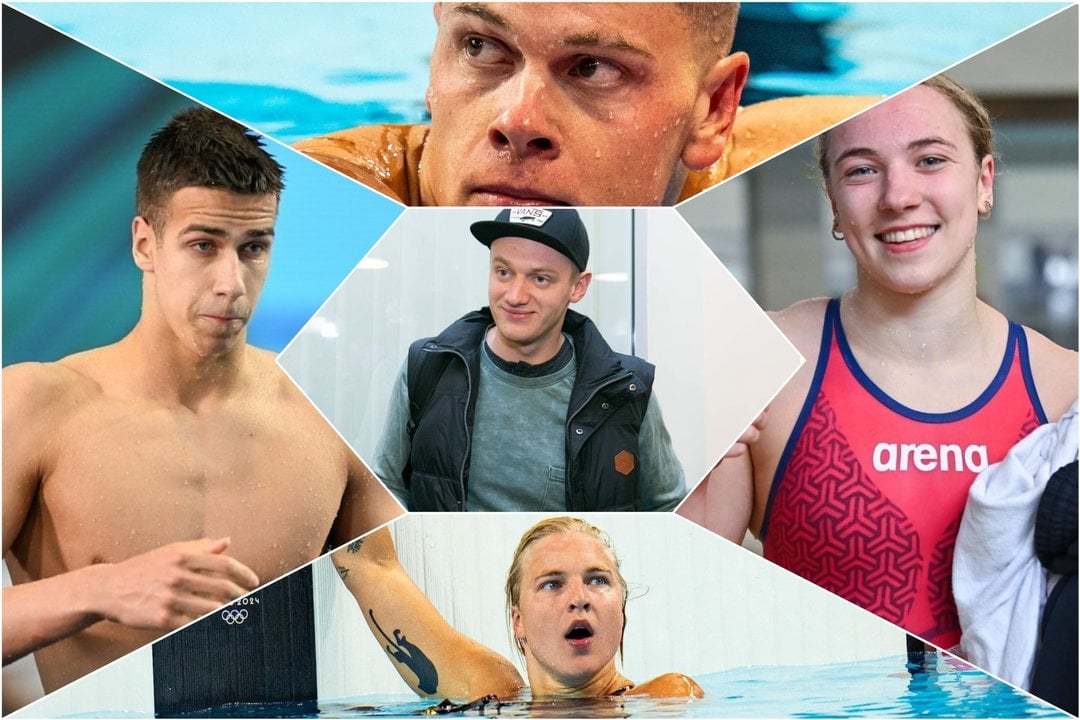„It's not impossible, but it's difficult. 2029–2030 does not seem like a problem, but 2028 would be quite difficult,“ Aelens told Elta news agency in an interview. While promising that the company will make every effort to meet its commitments on time, the CEO of Ignitis Renewables points out that there are uncontrollable circumstances, such as the uncertainty of supply chains.
„If you look at the history of the development of large infrastructure projects – Rail Baltica, the Independence ship, Harmony Link – there are factors that are not always within our control. And all companies, even if they try their best, are sometimes forced to admit that work has to be postponed,“ said Aelens.
However, he said once the park is completed, the power plants will become a tourist attraction.
„I would bet that in a few years, visitors to Palanga will decide to rent a fishing boat and see the wind turbines up close. Today, you might think it's a crazy idea, but this is happening in all European countries – people want to see where the energy they consume is produced,“ Aelens said in an interview.
During the interview, the Belgian-born CEO of Ignitis Renewables also said that he has not yet definitively ruled out the possibility of bidding for a second offshore wind farm, although the company does not currently see a way to develop another project in the Baltic Sea at an affordable risk.
„Now that the Government has postponed the auction date until next year, we have time to think. However, today, we take the position that we do not see a rational way to participate in the tender for the second park,“ he said. Ignitis Group publicly announced that it would not bid for the right to build a second 700 MW wind farm.
In the interview, Aelens commented on the partners' next steps and discussed the security measures to protect this strategic national asset in the face of increasing risks.
- What are the next steps for the company and the partner? You have 3 months to set up the joint venture?
- Yes, we have 3 months to set up the particular purpose vehicle, which will be formally authorised for development and operation. We will do this with our partners as soon as possible, as we have committed to our application. We were finally announced as the tender winner a little later than expected, which took some time.
- To check whether you are in the country's national security interests?
- Yes, for security screening. It took a bit longer to verify our partners than Ignitis (after the first offshore wind farm tender, the Government's Coordination Commission for the Protection of Objects Critical to National Security verified Ignitis Renewables and its partner Ocean Winds – Elta). Because our partner, a foreign company, needed a little more time to submit the necessary documents and for the authorities to check them. It took a little longer than we expected.
Now we will try to be fast and make up for this delay. We may only need some three months, but we are ready.
From 10 July onwards, we have planned our next steps to save time. We know how important it is for Lithuania to stop being dependent on energy imports and to achieve our green goals. We will do our part to achieve this as soon as possible.
I think everybody understands that offshore wind is a hot topic in the country, but at the moment, there are difficulties in the supply chains – the war in Ukraine has not helped them, and there is a strong demand for renewables, and everybody wants to build them. Therefore, buying wind turbines, ships, and cables takes a lot of work. But we will do everything we can to ensure we are on time.
Our goal for the next few months is to set up the company and implement the procedures that the State will carry out in the second park, which we will carry out in our winning park. This means that we will conduct the environmental impact assessment, geophysical survey, and necessary wind measurements. These are the things that need to be done to build the plants. And in the coming weeks, we will do everything we can to meet the deadlines.
- When exactly are you planning to start generating electricity in the park?
- The Government would like the park to be operational in 2028. According to the law, if we get the permit before the end of the year, we have to have the park ready within 6 years.
- Are you confident that it will work?
- We will do our best. We need complete control over the supply chains. We will ask suppliers for deadlines that comply with the law. Suppliers may say that it will not be possible to keep up. Then, we would have to adapt to market realities and develop the fleet quickly.
We have complete control over the development part – the environmental impact assessment sending ships to sea. In the coming months, we can collect data before the particular purpose vehicle is set up because it is important to meet the deadlines.
Ignitis and its partner are monitoring these things. We will do this as soon as possible. If we have all the permits within the 3 years allowed by law, we can ask suppliers for goods 3 years before the construction deadline.
Our main objective is to control the part we manage- issue tenders and see what answers we get.
If all the suppliers in the market tell us that they cannot deliver within 3 years, then we will have to go to the authorities and say that we have done everything we could, but that is impossible. If possible, we will implement it.
- So, there is still some uncertainty?
- Of course.
- But is a 2028 date still possible?
- Celtic challenges. Not impossible, but difficult. 2029–2030 does not seem like a problem, but 2028 is difficult.
But it depends on many factors. If you look at the history of the development of significant infrastructure projects – Rail Baltica, the Independence ship, Harmony Link – some factors are only
sometimes under control. And all companies, even if they try their best, are sometimes forced to admit that work may have to be delayed.
„Ignitis presents itself as a company that seeks the right partners hires the right people, and builds teams that no other state-owned company has ever built. You will hear a lot of English in our office, and we have many expatriates who have experience in developing large offshore wind farms. You will meet more Germans here than in any other Lithuanian company.
We hire people who know how to do it, and we do it because we want to succeed. But we can only deliver what we can control. We don't make foundations, cables, turbines or big transformers. The delivery times for all these components are much longer today than a year ago when the tender was launched. So, we know that there has been a change, but we will do our best to control it.
- How will the State and communities benefit when this project is completed and electricity production starts (and when it is built)?
- If I were to answer in detail, I would take longer than the time allotted for our interview. There are many aspects.
Did everyone notice that Litgrid announced a significant milestone last week: for the first time since 2009, Lithuania exported green energy for several hours. When this wind farm starts production, it will be hundreds of hours. Major renewable energy projects – onshore and offshore wind, solar – will all contribute to Lithuania's energy independence.
Lithuania aims to generate all the electricity it needs from domestic green energy by 2030. This is a very ambitious target and a massive change for the country. Lithuania will no longer be dependent on imports, and hundreds of jobs will be created to maintain the infrastructure, both at onshore wind farms and in the Klaipėda area. The coastal areas along the sea will receive a lot of investment.
I come from a country that is one of the pioneers of offshore wind energy. We will see things in Lithuania that you would not have expected before. We saw it in Belgium and thought it had happened because Belgium was one of the first.
But the same thing is happening in France: I can assure you that this offshore wind park will become a tourist attraction.
In a few years, visitors to Palanga will decide to hire a fishing boat and see the wind turbines up close. You might think that is a crazy idea today, but it is happening in all European countries – people want to know where the energy they use is produced. It's no longer Russian gas flowing through pipelines or cargoes of Qatari LNG, but wind farms near Palanga that will generate electricity. It will be home-grown energy in power stations operated by Lithuanian people, with Lithuanian ships sailing to repair them.
So yes, it will have an impact.
In terms of negative impacts, there will not be negative impacts. Because the Baltic Sea is not Iceland or Norway, where there is a large fishing area, billions of fish or a considerable fishing industry. Sometimes, ensuring wind farms and fishing activities is challenging, but in Lithuania, it is mainly sports fishermen and small-scale fishing. So, we will reach an agreement.
Also, offshore wind farms are not so noisy that they can be heard from the shore, so they will not disturb anyone. The visual impact is the same – they will be far away and will not disturb tourism. The impact will be positive overall.
In all countries, some people were scared, didn't want change, and thought it would negatively impact their lives. There will always be a handful of people who ask why they need it.
- The Balticconnector incident has prompted a debate about protecting such strategic energy facilities. What security features will be installed in this offshore wind farm?
- I have been through this phase in Belgium, which, like Lithuania, has a very short coastline and ambitious renewable energy targets.
Offshore wind farms are more accessible to secure than gas pipelines connecting countries, which stretch for long distances underwater. Offshore wind farms have a single cable to the shore, and monitoring such a large facility is less critical.
Ignitis Renewables' first management office is located here (at the company's office in Vilnius – Elta), and one will also be set up in Klaipėda. We will monitor the park 24 hours a day, 7 days a week. Every ship approaching it will be spotted, and cameras will identify the vessel. Offshore wind farms are considered a national strategic asset in many countries, so we need to agree with the coastguard and the navy on how we will exchange photos and information, communicate, and how quickly the services will get involved.
In my country, offshore wind farms are off-limits to swimming, fishing, etc. Tourists have to keep a safe distance. We cannot get within 1 km in many countries, and I am still determining what the Lithuanian legislators will set. We recommend a safe distance and close cooperation with the Ministry of National Defence on the site's protection.
For our part, we will invest in measures to enable the Ministry to protect it adequately. If they want photographs, we will provide them; if they wish to automatic ship detection systems, we will install them as well.
All these measures can be discussed. But it is not for us to buy ships to protect the fleet. We aren't usually the ones that handle that.
That will be cooperation, which is what we are committed to.
- Ignitis has previously announced that it will not participate in the second offshore wind farm tender. Why?
- Yes, we have always said that we have achieved our goal by obtaining the right to develop one offshore wind farm. It was our minimum ambition, and we took a significant risk as we committed to building the park without any subsidies. Ignitis has demonstrated its commitment to developing a large infrastructure project without state aid to bring the Lithuanian people green energy. We are the largest electricity supplier in the country, and we will strive to remain so. So, we have done our job.
On the second one, it is a twisted question. We cannot put so much risk on our shareholders – the State and 25% of private shareholders. So, to change our minds, we need to find a solution that minimises the risk. We can persuade our shareholders to change their position if it jumps out like a rabbit out of a magician's hat. If the status quo persists, it would be too risky for Ignitis to construct two parks.
- But, for example, did you participate in the public consultation organised by the Ministry of Energy on the second park?
- Otherwise, we would not fulfil our duty to listen. But it is not an obligation. If you remember, a vast number of companies took part in the consultation before the first tender. But when the tender was launched, there were only two of us. The same is true for the second auction. And we have a large number of companies involved in the consultation. We are even seeing companies we have not seen before – because the second park will be built with the possibility of a public contribution. Unlike us, the state support model gives the investor more security, even if the investor has a limited client portfolio in Lithuania.
So, the question is whether there is competition, whether we can beat the competition with acceptable risks. To participate just for the sake of participating with zero chance of winning is not Ignitis' goal.
- Have you already discussed this with your main shareholder?
- Still waiting. Because the deadlines were unclear, we have yet to be definitively announced as the official winner of the first park tender. Our partnership with our strategic partner Ocean Winds is limited to the first wind farm. So, we would not have a partner for the second one.
Now that we have officially won the first one, we would be eligible for the second one on our own, as we own an offshore wind farm in Europe. Add to that our experience in Scotland, and we would be eligible for the second tender. We could not go it alone in the first one because we needed more experience.
This could only be an argument in discussion with shareholders with the official final approval of the first park.
Until the last few weeks, the second tender would have been launched before our final award of the first one. Now that the Government has postponed the auction date until next year, we have time to think.
However, today, we are taking the position that we do not see a rational way to participate in the second tender for the park.
- So, there is some chance.
- It always exists, but it depends on the environment.
